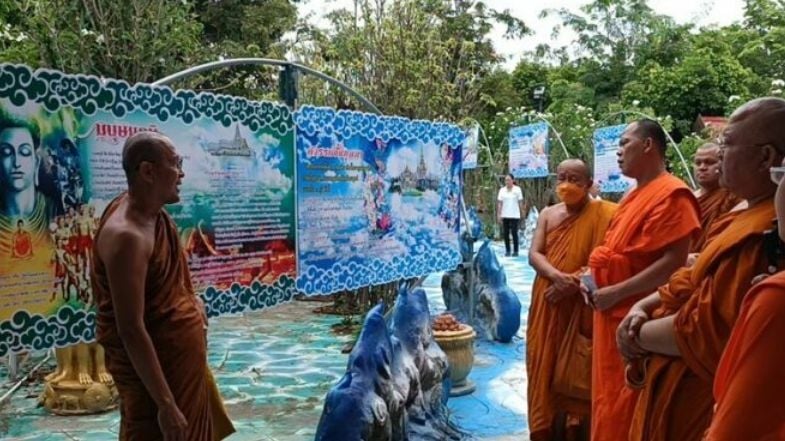Buddhist temple warns good people can go to hell for using life support

Wat Pa Kramathan, a famous temple in Nakhon Ratchasima, set up an educational centre to disseminate Buddhist teachings. It has installed a sign with an intriguing Buddhist message: “Doing good deeds can lead to hell.” The temple head explained the reasoning behind this unusual warning today, a condemnation of artificial medical life support.
Located in the Non-Saad district of Chokchai, Nakhon Ratchasima, Wat Pa Kramathan transformed its precincts into a learning centre to impart the teachings and philosophies of Gautama Buddha. The Buddhist teachings centre narrates stories of sin and virtue, rewards and punishments, aiming to serve as a reminder to those who visit.
One of the Buddhist teachings displayed speaks about the realm of hell, narrating tales of sinners who end up there, reincarnating as demons and various hellish creatures. What particularly draws attention, however, is the concept that “Doing good deeds can lead to hell,” which seems counterintuitive to many.
The temple has erected a sign that reads, “When the mind is sorrowful, virtue becomes hope. Beware, doing good… can lead to hell… because the mind, before death, is sorrowful.” This Buddhist teaching, as mentioned in the Mahakammavibhanga Sutta, essentially means, Good people can end up in hell, primarily due to the value placed on life support that may cause parents and grandparents, who have led virtuous lives, to die in agony and possibly fall into hell.
The concept of hell is often associated with committing sins. However, even those who have led virtuous lives can end up in hell during their last moments, the Buddhist temple teaches. This happens when they rely on medical science to prolong their lives, leading to suffering in the ICU.
Picture an elderly person, 80 to 90 years old, who has spent their life doing good deeds. When they are in the emergency room, the doctors have to revive them, sometimes causing broken bones, leading to more pain and torment. These situations do not provide peace of mind.
Despite leading virtuous lives, they suffer in their final moments, which can lead to them falling into hell. As Buddha taught, there are four groups of people: those who commit sins and end up in hell, those who commit sins and go to heaven if their last thoughts are good, those who do good and go to heaven, and those who do good but fall into hell, as exemplified by life-prolonging measures. Therefore, every life action should not be taken lightly, and one should always strive to do good.
The temple head, Ajarn Sanprachan, elaborates that there are various ways to perform good deeds, each resulting in different outcomes. For instance, performing good deeds with the hope of reward results in becoming a Jatumaharajika Deva.
If good deeds are done out of the belief in righteousness, one becomes a Tavatimsa Deva. Even children who perform good deeds following their parents can achieve higher virtue, leading to Yama Devas.
However, if good deeds are performed with wisdom and discernment, like the lady Visakha who offered a rain-bathing cloth to the Buddha, it is considered truly beneficial and leads to Nimmanarati Devas, reported KhaoSod.
Follow more of The Thaiger’s latest stories on our new Facebook page: CLICK HERE.
Latest Thailand News
Follow The Thaiger on Google News:


























